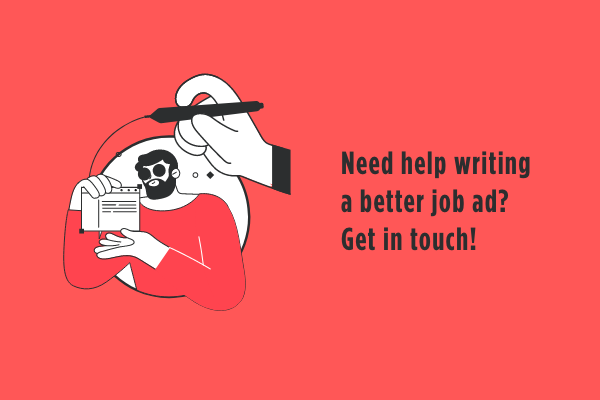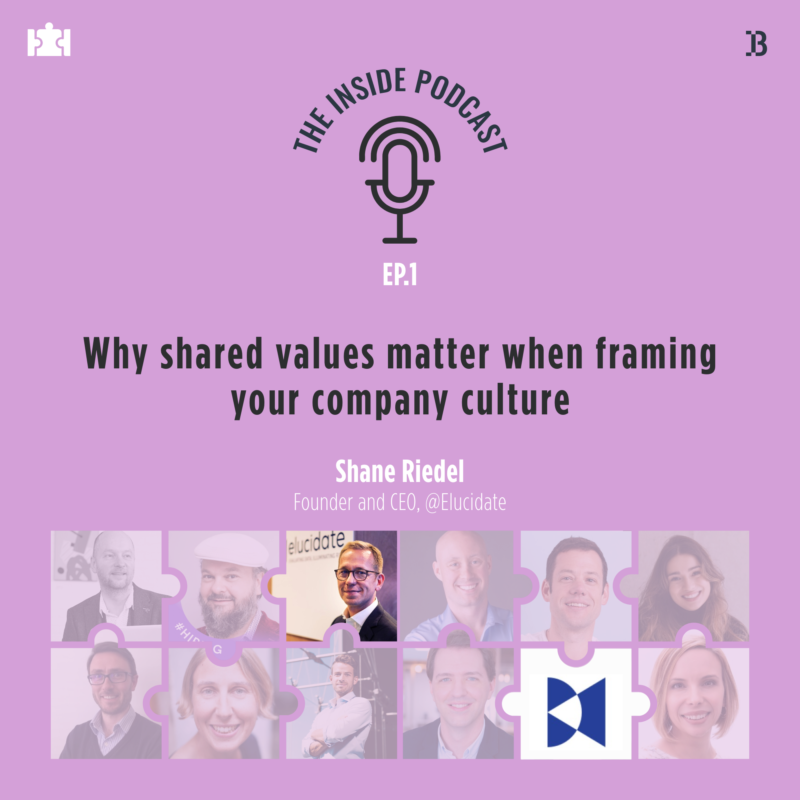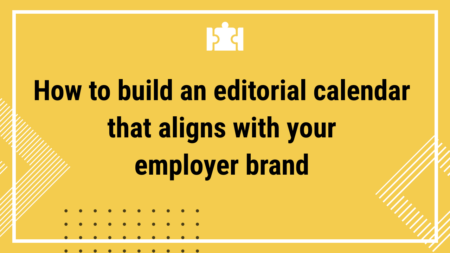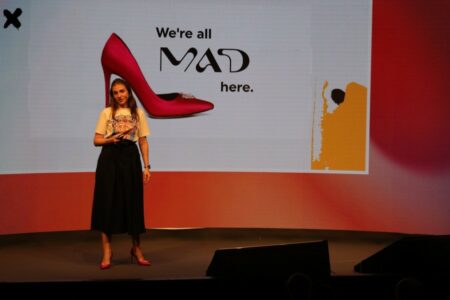Overview
Ready for Season 5 of Employer Branding: The Inside Podcast?
In the 1st episode of our 5th season, we had the pleasure of speaking with Shane Riedel, Founder, and CEO at Elucidate. We talked about the importance of having a values-driven organizational culture, but also about the key to organizational stability and the way shared values truly attract and retain the best people.
What you’ll learn by listening
- Maintaining consistency between external and internal branding
- The importance of having a values-driven company culture
- How shared values attract & retain the best people
- Company culture, the key to long-term organizational stability
- A personal perspective Berlin’s talent market
About the company
Elucidate is a financial crime risk management company enabling financial institutions to benchmark and price financial crime risk through the Elucidate FinCrime Index (EFI), an automated platform developed in partnership with leading global correspondent banks.
Elucidate is an approved benchmark administrator, authorized by the Federal Financial Supervisory Authority (BaFin) and registered with the European Security and Markets Authority (ESMA).
Podcast link – Enjoy listening to The Inside Podcast, S05Ep.1!
Podcast transcription
Georgiana: Good morning, everyone! This is Georgianna with Employer Branding: The Inside Podcast. Today I am talking to someone from Elucidate, the CEO and founder of the company. His name is Shane Riedel. Welcome, Shane! Thank you so much for accepting to talk to us today.
Shane Riedel: Thanks very much. It’s great to be here.
Georgiana: And I have to say that Elucidate has a very, very interesting business model. And I would like you, Shane, first to tell us a little bit about it. And yeah, just describe what you guys do in a few words.
Shane Riedel: Yeah, sure! So we’re a data science company, and we offer financial crime risk assessment and benchmarking. Our products are used primarily by banks and financial institutions, but also large corporates really started to enable quick decision making around risks, like fraud or corruption or money laundering, or terrorist financing. Sometimes I like to position it a bit like what Moody’s or Standard and Poor’s does for credit we do for financial crime.
Georgiana: Got it. We’re gonna get back to that topic in a few minutes. Because this is an employer branding podcast, I’m jumping right into it. And please tell me in a few lines, what does Elucidate do for employer branding? And how much of it is destined for the current workforce? And how much to the future one?
Shane Riedel: Yeah, I mean, given where we are, in terms of stage and size, the majority of our employer branding efforts have been internal to date. And to some extent reused for recruiting or external, but primarily we focused on internal. We raised some external financing, like a lot of companies in the last couple of years. And so it sort of solidifying what our values were, what our culture was going to be in the face of that growth was really important.

And so that’s forced us to undertake a pretty extensive internal exercise. I think that manifests itself in a couple of different ways. On one hand, we focus on company benefits that reflect our values. So values, like flexibility and independence, and entrepreneurship. And that manifests itself in, let’s say, remote working possibilities or employee-led development planning, learning planning, or an optional four-day workweek. And those are, I wouldn’t call those internal branding mechanisms, but they are kind of behaviors or processes that lend themselves to our values.
On the other, the other point I suppose I would raise is that because we’re small, or maybe this is actually not because we’re small, but maybe this should be for everybody that we really strive to maintain consistency between our external and our internal branding. So how do we position ourselves externally? Yeah. Ambitious, questioning, values-driven. Yeah, we tried to align those to our internal employee branding, as well.
Georgiana: How involved are you personally, as the founder and the CEO, in the company culture and understanding what people are about and what they need, what they want?
Shane Riedel: Yeah, so, less than I was when we were nine people or five people. But you know, it’s still a really critical function, I think of the CEO, particularly in an early stage company. Although that said, you know, I come from finance originally. And when I was working at Goldman, they also would have said that this was super important. So I don’t think it’s unique to small companies. But you know, what I have learned is that, in a startup environment like this, everybody will always say your employees are your greatest asset. That’s true.
The criticality of each employee is far greater because there’s much less kind of redundancy in the system. So ensure that your employees are aligned to the vision of the company and that they feel like their execution is consistent, both with the values as well as the strategic direction. All of that is incredibly important in an early-stage company. As we’ve grown, what we’ve sought to do is to migrate that from kind of the, you know, when you’re five people, it’s because you go to lunch, and you talk to people and you figure out kind of how the culture is evolving and so forth.
But that doesn’t work when you’re 50. And so, today we’ve got much more structure. We try to be very KPI driven, you know, culture is a tough one to put KPIs in place, because it is a kind of normative or qualitative subject. But you know, we have developed means to monitor on an ongoing basis, the degree to which our employees feel as though we’re being true to our values, and that they sort of remain motivated and incentivized on that basis.
Georgiana: I took a look at your website, obviously. And I found quite a story to explain your beginnings, really, really interesting. And I was wondering how much of this story actually functions as a talent magnet? And I have a quote here from your career page. If you would like to use your skills to fight financial crime, strengthen international interconnectivity, and engage with emerging markets, we would love to hear from you.
Shane Riedel: Yeah, I think that all of our people are different. And all of them derive differently or assign different importance to different elements of what it is that we do here. But absolutely, we’re a values-driven company. And the folks who work for us are very values-driven. So we were, for example, named to the top 50, inclusive fintech, around financial inclusion last year, and that was really important to our employees because a B2B platform isn’t typically associated with driving financial inclusion in that way.
So yeah, that’s incredibly important that when we’ve surveyed our employees, we have consistently found a very strong normative drive to work for us. So yes, they’re working for us, because it’s a really interesting problem that we’re trying to solve, or, you know, our data scientists work for us, because it’s a really data-rich environment. We talked about this on our all hands a couple of weeks ago, and one of our employees is one of our data scientists from Columbia. And he was sort of recounting his view that you’re growing up in Colombia, in a market that has really been ripped apart by corruption and narcotics over the last 50 years or so.
You’re coming to work for us, it’s his way of doing the technical tasks that he loves, but also sort of chipping away at this problem, which is really, really important to him personally. And I think that’s something you find quite consistently across the group. For me, I got my start. I didn’t come from finance originally, I started working for the UN. And so you know, I definitely approach this as a social problem that needs to be solved with very technical international elements. But I think that’s a shared sentiment across the team.
Georgiana: I would think so. This is why I was really curious to find out, and I’m sure for at least part of the people, the financial crime element has quite some value. The leadership and management style within the organization reflects the company culture. Agree or disagree?
Shane Riedel: Well, if the company is going to succeed, it does. Yeah, I think that the way we look at this, and my board tells me this constantly, at the early stage, there is nothing that’s more important than culture, to the company, not revenue, not roadmap, really, the culture is the most important element of ensuring the long term stability of the company. If you don’t have a good culture, you’re going to have the wrong incentives in place, you’re not going to be able to attract and retain good talent. And so that’s been a huge focus for us.
And that’s had positive impacts, you know, all the things I mentioned, it’s also had costs, right? So an example. We had a salesperson working for us, he was a fantastic guy, he was really, really good at what he did. He connected with clients very effectively. But we ultimately became aware that he was not adhering to our values. And despite the fact that it was going to have a commercial impact. We decided to part ways with him because of his values. So values only work if you apply them in the good times and also in the bad, and so that’s been really key for us.
We aim to keep culture and values top of mind not only by talking about it, right? This isn’t a pure really qualitative thing like it has to be measured. So I alluded to the fact earlier that we put KPIs and things like this, we measure if they, you know, within our 2022 objectives, we have two objectives as a company, one is a commercial objective. And the second is a cultural objective. And both of those are kind of equally weighted when we talk about OKRs, and what we want to achieve over the course of 2022.
Georgiana: Okay, would you say that Elucidate has an employee value proposition? Or what is the promise that you make to current and prospective employees?
Shane Riedel: I think, on one hand, values are an important part of being attractive as an employer and retaining good talent. But, you know, it’s more about sustainability. And from my perspective, for us, we offer a flexible and hopefully a satisfying working environment, and that’s nice for people coming in, for sure. It’s not without pressure, it’s not without drive. Um, but if I think about the kind of USP or the value proposition we offer to employees, it’s the opportunity to kind of do what it is that you are good at, technically, whilst also solving one of the world’s most intractable problems, and something that has gotten exponentially worse over the last 20 years. So you know, if you can be a data scientist, be a developer, and, you know, write super interesting code and do really interesting work, and also know that you’re contributing to the, you know, kind of the betterment of society at the same time, like, that is the optimal scenario for kind of how you want to exist in your work life.
Georgiana: And I would also like to touch on a different topic that’s been very much circulated in all of the podcasts. And that is diversity and inclusion. And I’m one in a rather small company, what happens on that topic?
Shane Riedel: I think that for us, we’ve always been a super diverse company. And we highly value inclusion, and we, we value it. From the perspective of who works for us, what backgrounds do they bring? You know, do we have a strong gender balance? Do we have a range of different educational backgrounds and ages who are part of the company? We also look at it from the perspective of our product, right? You know, we are in the business of modeling financial crime risk.
And if we look at the way financial institutions have modeled financial crime risk in the past, it’s tended to be quite discriminatory. So people of color, you know, emerging markets have been much more harshly judged, for example, it’s much more difficult for certain people to gain access to financial services than others. And so when we think about how our product works, how accessible is it? How does the model work? What incentives does it drive, your spirit of inclusion has really sort of penetrated both the development of the product as well as I would say, the development of the team.

Georgiana: And actually, I have to confess that some of the companies that I’ve been speaking to that are approximately the same sizes, as Elucidate, are really successful at this. And they’re also simultaneously successful at creating a healthy company culture, just because they care not so much about the formalities, know the definition of the terms, but really, they care about the people and try to just get everyone involved and not really look at I don’t know, things that maybe other companies don’t take into account, as you said, gender, race, and all the others so well,
Shane Riedel: I think, for us, the view that we’ve taken from the beginning when we think about just from an employee perspective now is that our market is quite global. We have users who are in the Middle East, we have users who are in America, and we have users in Europe, and Africa. And it was really important when we were developing the product when we were developing the go to market strategy, that we had kind of a range of voices present in the formulation of the company and that the company itself should reflect our customers to the greatest extent possible.
As I mentioned before, I came from Goldman and Goldman to the super diverse organization, there’s no question about it. But that diversity does not penetrate every level of the organization. Right, you know, as is the case with a lot of large corporations. And then what we’ve tried very hard to do is to ensure that we’ve recruited in we’ve done this with you with real intent, recruited a team at every level, which brings a range of viewpoints, and to also create a culture in the company that invites a challenge that, you know, we’re not just bringing in diversity, so that we can say, Well, look, you know, we have 29 different nationalities and you know, 14 different native languages or whatever, but that it actually is bringing value to the company by challenging the assumptions that, that particularly that the founders brought to the table and to ensure that we’re building something that’s, that’s really globally applicable, and Canada as a result, become the fulfill our greatest potential.
Georgiana: Okay. What would you say is one good thing that’s currently happening in the Berlin talent market? And what’s been bothersome?
Shane Riedel: Yeah, Berlin? Several, because we work with banks. Berlin is not necessarily the intuitive place to set up. Although there are other reasons, for example, so works with things and they’ve done very well here and Mambo and others. So for sure, there’s definitely a precedent. You know, my response when folks X, ask why we, why we built the company in Berlin was because I think that we see Berlin as being number one having a very good talent pool. In a post Brexit environment, we see it as a really attractive place for European talent more generally, as London in some ways fades from that, obviously, it’s much more affordable to live, so our employees can have a far better quality of life.
And it opens up, I think Berlin is a more livable city than some of the other cities that that our technology hubs. And so far, as you know, folks with families, for example, can live here, whereas London, for example, is great for, you know, back end developer in his 20s, but maybe once he gets to 35, and has two kids like London’s not such a great place to live anymore. So yeah, I think that’s, that’s a really positive element. And we continue to see that, even in the face of kind of difficulty in housing and things like that, Berlin remains a very attractive place to go on the kind of what’s bothering me about Berlin.
And I will say, I love Berlin, I love living here. And, and I have no intention of leaving. But I do think we see that the startup event last year published a report on migrant founders. And it, it sort of talked about some of the issues that, that we’ve perceived qualitatively, and that is a bit of differentiation between, you know, founders, with migrant backgrounds in the companies that they run, and I’m from a migrant background. So you know, that is important. And then kind of, let’s say, pure German companies may be the easiest indicator would maybe be the companies who speak German, versus the companies. And, you know, what we see as the downside to this is, well, the upside to it is that I think we’ve been able to attract fantastic international talent, which, if I’m honest, has been passed over by German companies.
And that’s great for us. On the downside, though, we also that differentiation, that separation between the German companies and the migrant founded companies, I think, is unhealthy. And it has made it quite difficult for us to attract talent from Germans. So there’s a big pool of talent locally, but I think we are not adequately accessing and I view that as unhealthy in the long term, for sure. You don’t want to exist in a bubble.
Georgiana: No, for sure, for sure. But I think, in itself, Berlin is a bubble. In Germany, at least, this is my perception so far. And I’d mentioned for four years I do speak German but not really bilingually. I’ve discovered that once you exit Berlin, it’s really not comparable.
Shane Riedel: I think that’s true, and that would even apply to Europe Frankfurt, probably similarly cosmopolitan, but certainly, you know, for founders that I know, in Munich or in Hamburg, for sure their companies are much more, kind of authentically German if you want to say that. Yeah, I don’t I definitely don’t view this as a weakness. You know, let me be clear. You know, I think that our access to international talent from across Europe, and the visa regime here make it very easy to bring in talent from outside of Europe. So all of that’s, that’s fantastic. But I do feel like I would like to be able to compete for German talent a bit better. And I would also not like to have it be viewed, that we exist somehow separately from the society in which we live. I don’t think that’s healthy over the long term.
Georgiana: That’s true. Well, I think I think speaking German is going to solve a lot of your problems and cope with them personally. We’re reaching the end of this episode, and the last question I’d like to ask is a predictive one, if I may say so. Do you think remote work is here to stay? Or is hybrid taking over?
Shane Riedel: Yeah, I mean, as with most things, when it comes to employees, we try to, we try to make our decisions based on what the data tells us. And so we do that through kind of regularly, regularly surveying our employees. And so we recently asked this question, you know, if you, if you could come into the office, or when you come into the office, I should say, what would be your desired regularity for doing so.
Because during COVID, we took the opportunity to hire a bit more outside of Berlin. And so some of our employees, they actually don’t, it would not be feasible for them to come to the office every day because they’re in Marrakech, or they’re in Bucharest, or whatever. So for those who are in Berlin, we asked him that question, you know, if you could Would you come in every day? Would you come in three or four days a week? Would you come in one day a week, or would you not come in at all, and 60% of our team said that they would not come in at all, if they had the option, however, and I mean, this is not a narrative that’s unique to us. What our team has really enjoyed. And this is what we sort of kicked off this year is coming in either based on subject or based on function.
So bringing together the front end team bringing together the team who works on a particular product, across all the different functions, including flying them in right and giving them three, four days to work together in the office, and to collaborate in that way. And so the office takes on a different function, right? Its value is not in the proximity to others, its value is purely in its collaborative capabilities. And so what that’s changed the nature of what our offices for what kind of office we want to have.
And we aren’t considering at this point, to, for example, get a big office that accommodates all 55 or 45 of our people, but rather to have a small office and accessibility to meeting rooms, to bring our teams together periodically to fly in everybody from everywhere, one or two times per year. And really to focus on collaboration when we’re together, and creating sort of robust communication mechanisms that are efficient when we’re not together. And that’s I think we’re learning so the long way of answering the question, I think we’re not going to go back if that’s not in the cards. I’m very happy to have you know, the cost of a very expensive office back to put onto my runway. And, and I think we have the support of our team in making that decision.
Georgiana: Got it. Thank you so much for the discussion, really valuable input. I wish you the best of luck in growing the team and in navigating Berlin and the German talents. It was really nice talking to you.
Shane Riedel: Thanks very much.
This was Employer Branding: The Inside Podcast. You can find our podcasts on Spotify on Apple podcasts and content on employer branding-related things on employerbranding.tech. Until the next time, stay tuned.






